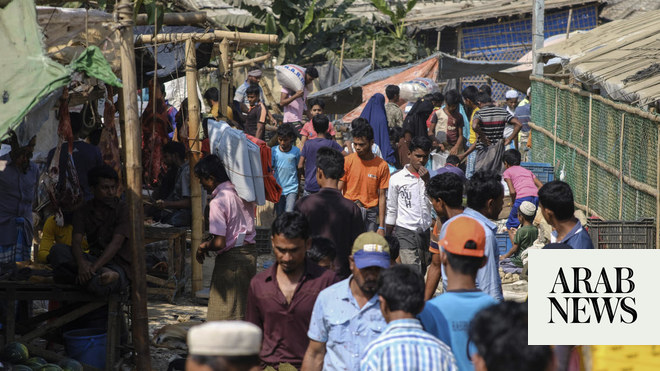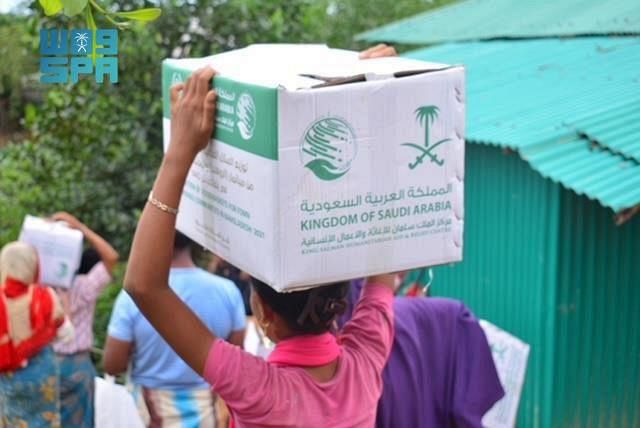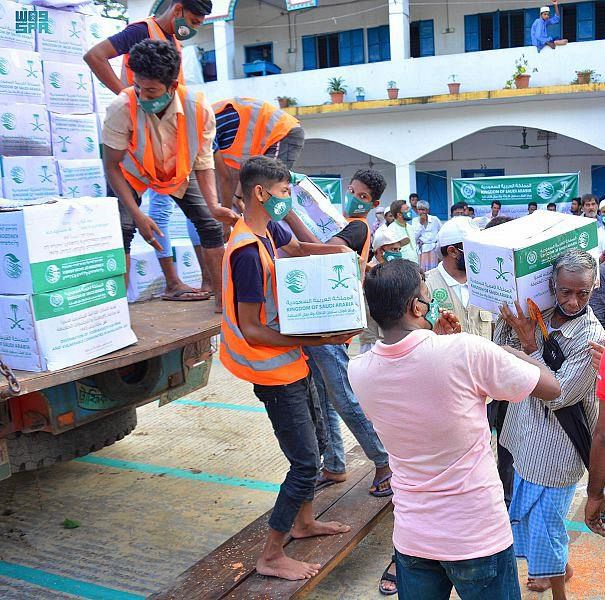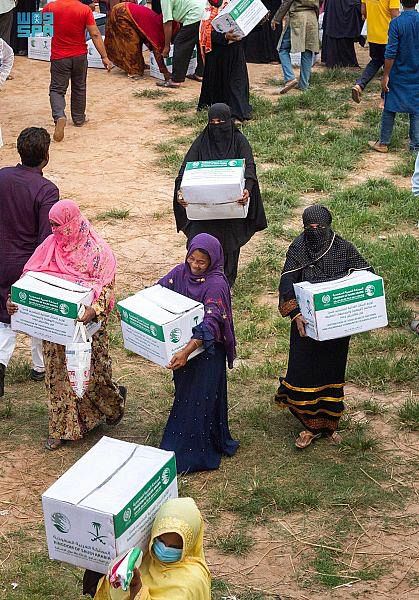
Fighting between rival gangs in the Rohingya refugee settlements in Bangladesh has forced hundreds of people to leave their shelters in a week where at least seven have died.
“When it is night, it becomes hell. When you try to sleep you hear a lot of firing, you hear a lot of bullets, people are screaming, people are fleeing from home,” said a Rohingya refugee who lives close to where the fighting has taken place.
“I saw a large number of people, they were running with long knives, long sticks, and they were firing into the open,” they said.
The refugee, who asked to remain anonymous, said they had to leave the camp at night and sleep rough in a nearby Bangladeshi village, returning during daylight hours.
Rohingya activists said the fighting has exposed how vulnerable people are in the crowded camps, especially at night when security forces and humanitarian agencies withdraw.
The seven fatalities, including one woman, have all happened in the past few days, according to Shamsud Douza, an official in Bangladesh’s camp authority.
The clashes have featured the Munna group, named after their leader, who is suspected of being involved in drug smuggling from Myanmar, and another faction allegedly linked to the rebel group Arakan Rohingya Salvation Army (ARSA).
The fighting has terrified other refugees as huts have been torched by the rival Rohingya groups. Activists’ photos show families fleeing with their belongings on their shoulders, looking for other places to stay in the camps.
The UN refugee agency said it has struggled to provide help to these newly displaced families, and that humanitarian agencies had to temporarily withdraw from the camps on Wednesday because of the violence. Services have since resumed.
Attacks on military posts in Myanmar by ARSA in 2016 and 2017 were followed by the brutal crackdowns and “ethnic cleansing” of the Rohingya, pushing them into Bangladesh. The group distanced itself from the camp unrest in a statement on Monday, claiming “we are being framed by these gangs”. A contact close to the group said core members are not in the camp, but aligned gangs have been vying for control with Munna.
“Both of them are criminals,” said another refugee activist, who also did not want to be named. “Tens of thousands will get relief and be able to sleep well if these people weren’t oppressing our community.”
The methamphetamine “yaba”, produced in Myanmar, has become pervasive in Bangladesh, where there are millions of addicts. Refugees have been blamed for introducing the drug to the country.
“The scenario is yaba versus yaba,” said one man. “Munna recruited some unemployed boys by offering them huge salaries and then ARSA could no longer influence in some areas but, for them, it is very important to keep control all over the camps.”
“A minority of people are engaged with them but the sufferers are the whole population. They can’t protest, they can’t speak against them, they are just stuck under them,” they said.
Douza said Bangladeshi law enforcement had stepped up patrols in the camps and carried out arrests. An activist shared a picture from Wednesday of police walking through the camps in riot gear.
“The situation is deteriorating and Rohingya in the camps need protection. We spoke with some affected by the violence and their fear is palpable,” said Matthew Smith, head of advocacy group Fortify Rights, who warned against withdrawing humanitarian agencies that were needed more than ever to support the displaced refugees.
“The current level of protection is minimal … these warring parties developed in an environment of wholesale rights violations in Myanmar and, to an extent, in Bangladesh,” he said.
UNHCR warned that the current clashes are a product of the conditions in the camps, now home to about a million people.
“The lack of progress on durable solutions, particularly the safe and dignified voluntary repatriation of refugees to their homes in Myanmar, has increased uncertainty and hopelessness in the camps, contributing to the current situation,” said Louise Donovan, UNHCR’s spokesperson in Cox’s Bazar.
Amnesty’s South Asia campaigner Saad Hammadi said the recent violence and other challenging conditions around camps should not be used by Bangladesh to justify the controversial relocation plan to shift refugees to Bhasan Char, an island in the Bay of Bengal.
Already about 300 have been transferred to the island, where women have accused guards of sexual abuse.












